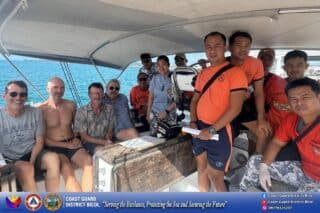The Asia-Pacific Economic Cooperation (Apec) remains optimistic that the planned free trade deal covering its 21 member-countries, which include the Philippines, would push through and provide a boost amid a projected slowing in the region’s economy over the medium term.
In a statement, Apec Secretariat executive director Alan Bollard said the proposed Free Trade Area of the Asia-Pacific (FTAAP) “is a beacon on the horizon, but it could be time to better define this policy” as the economies belonging to the group are expected to slow down in the next five years.
“Medium-term GDP [gross domestic product] forecasts for Apec economies have actually been revised down from 5 percent to between 4 and 4.5 percent over the next five years. The consequence of that downward revision in growth would actually translate into a $4-trillion deficit in economic outlook for Apec economies over the medium-term,” said John Denton, chair of the Apec Business Advisory Council’s (Abac) finance and economics working group.
“It’s an alarming figure in its own right and one that reinforces the need for policy reforms to promote greater regional integration and connectivity to improve economic growth and development,” Denton added.
The Abac has been convened in Santiago, Chile starting Monday until Wednesday “to put forward recommendations for strengthening the region’s business environment” ahead of the Apec Ministers’ Responsible for Trade meeting in Qingdao, China on May 17 to 18.
According to Apec, Abac has been working to identify pathways to the FTAAP in order to improve market access and export growth in the region.
Bollard, meanwhile, has updated Abac members on the joint work to move towards negotiations for the FTAAP, Apec said.
Apec first pitched the idea of coming up with the FTAAP in 2006, but talks have not progressed as fast as rival regional free trade agreements (FTAs) in Asia-Pacific, such as the US-led Trans-Pacific Partnership (TPP), the Asean-led Regional Comprehensive Economic Partnership (RCEP), as well as the trilateral FTA covering China, Japan and South Korea.
During last year’s Apec Ministerial Meeting in Bali, Indonesia, leaders reaffirmed the group’s commitment to integrate the region’s economy via the FTAAP.
According to reports, high on China’s agenda at the upcoming Apec trade ministers’ meeting, which it will host, is pushing for co-members to begin a feasibility study on the proposed FTAAP.



